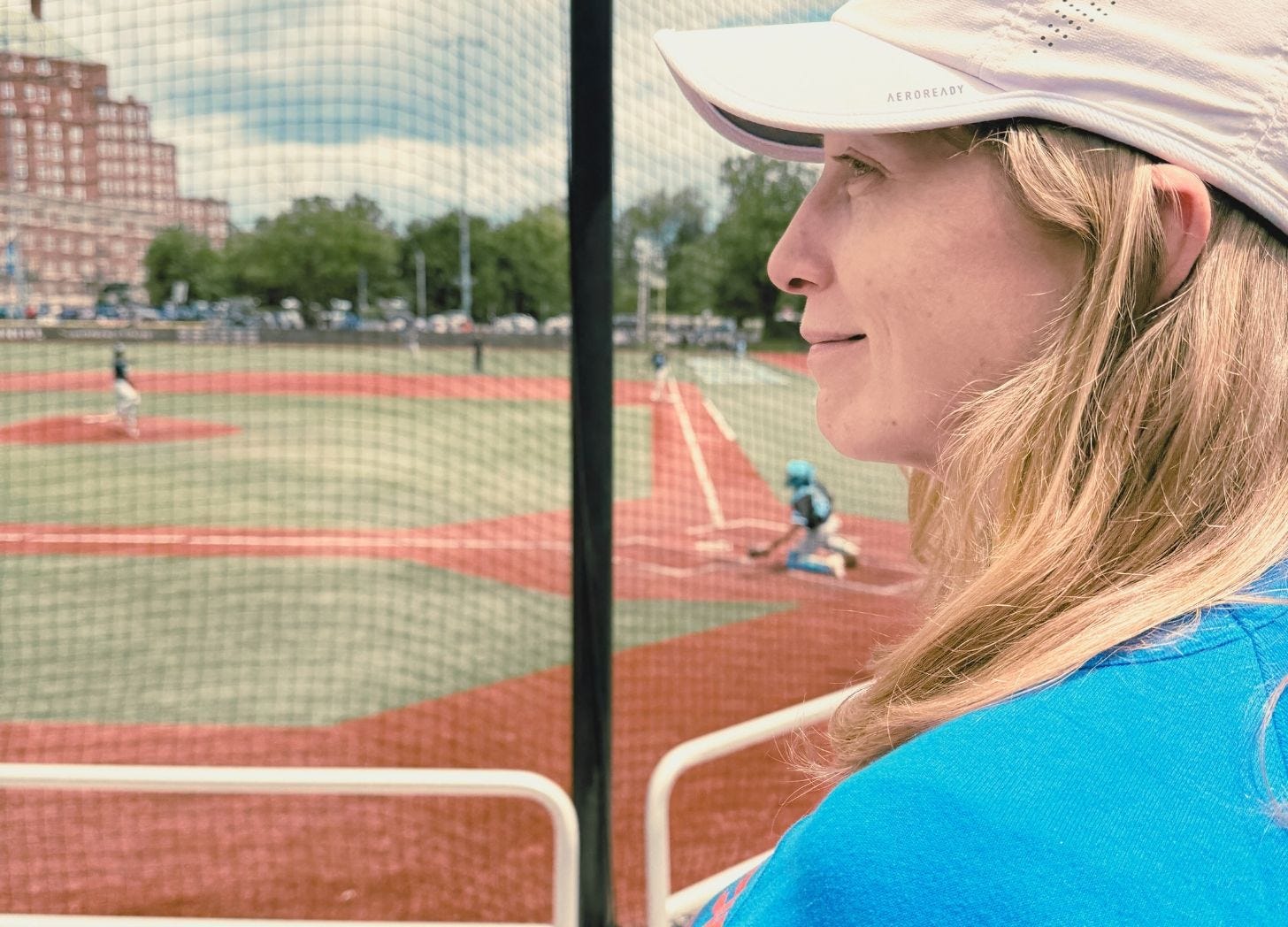My sister came to stay with us a few weeks ago for my reading at Books & Books, which made the special event feel week-long.
In the same way my sister and I can enjoy long, ongoing conversations she and my son can enjoy prolonged games of Monopoly. There match went on for three days, and the only reason it concluded was her flight home. My son was dominating the board, with the exception of my sister’s hotels on Broadway and Park Place.
Monopoly is such a slow, painful game to me. I rarely agree to play. I simply don’t have a hunger to dominate an entire city, even fictionally. Wouldn’t it be so much more fun if the goal of the game was to make the board sustainable? To aim for a city in which all neighbors thrive? It seems to me that this would be the way to win at Monopoly, and then you could walk away whenever you wanted, not because you were quitting, but because you and your crew had collaboratively won at creating a thriving world, and now you’d rather go play ping-pong.
Watching my son and my sister, I became convinced the game had a hidden purpose, and that we were meant to read between the lines, transcend the instructions, and realize it wasn’t a win to dominate and annihilate each other.
So I did a little digging, and guess what, I’m right.
Monopoly was invented by a woman named Lizzie Magie1, who grew up in the late 1800’s, with a father who believed in equality, and he was a vocal part of a movement to create a tax system in which a person was entitled to 100% of their wages, and the only tax would be on land ownership since the land’s resources should benefit all.
As a young woman, Magie moved to D.C. and she worked for the Postal Service in the Dead Letters Department, where she tried to reunite undeliverable mail with its owners. In her free time, Magie wrote poetry, short stories, and she was a comedian. Our kind of woman. She was also an inventor, who attempted different ways of furthering her family’s ideals
Because of the rising popularity of board games, Magie invented, The Landlord Game, which she patented in 1904.
In Magie’s original version of the game, there were two sets of rules.
One was called The Monopolist Set, in which the object of the game was to obtain wealth and force other players out of business.
In the second set, The Anti-Monopoly Set, the object of the game was wealth creation for all. Magie believed this approach would teach that the anti-monopoly version was more fun, and morally superior.
I knew it!
Unfortunately, Magie’s ideal version of the game wasn’t the one that everyone loves, nor what got the Parker Bros attention. It did however gain a following among economics professors—and from there—students who started making their own homemade versions of the game, and it was one of these versions that made its way to commercial success. Parker Brothers did eventually find out about Magie’s patent, and they paid her pennies compared to what she should have received, and now it’s up to people like us to keep the truth circulating.
Are there lessons in Magie’s story that could help us as today’s entrepreneurial, poetic, idealistic, good-humored creatives?
Surely.
One of the things this story has me thinking about is the importance of naming, packaging, and marketing, and how people with strong ideals often have a hard time synthesizing their ideas in a way that becomes popular. Or maybe it’s a matter of iteration. It can take several takes of an idea, with little changes along the way, to reach a broad audience.
I saw my sister again this weekend. This time my family and I traveled to Baltimore for the NCAA Division III Baseball Super Regionals, which is basically the semi-finals of the college World Series. The tournament was between my brother’s team, Case Western Reserve University, and their opponent, John Hopkins University.

As I sat in the stands, under a cloudy but bright blue sky, I felt the importance of each pitch. It occurred to me that one of the things that makes baseball so interesting is that it’s simultaneously fast and slow. The space between each athletic burst is drawn out, but when the ball is finally thrown or hit it’s traveling near 100 MPH. If you don’t pay attention, it’s easy to miss the excitement. It’s a long game. A game my brother has been playing (and I’ve been watching him play) since he was in t-ball. He knows every nuance, and he still finds the game fascinating and fun. When I called him a few weeks ago about Miami little league drama he said, “there is really no such thing as losing. Everyone plays the game, and then one team wins. When you win it opens new doors or experiences, but it’s not like the other team lost something, they just didn’t gain it.”
I love overlaps between philosophy and athletics.
This all has me curious about what winning looks like to me these days.
I think somewhere along the way I sort of gave up on winning in the traditional sense of the word. It may have been a long time ago. I am only one year younger than my brother, and I loved playing with him and his friends, which meant I pretty much never won, but that was an easy sacrifice since it meant playing with the kids I looked up to. I also have a sister who is eight years younger than me, so I learned the joy of letting her win. I’ve never liked when people become upset from losing, and as a caregiver I have often sabotaged my own win in order to keep someone I was playing against from feeling upset. I also remember girls on my softball team getting mad at me because I didn’t cry after we lost a big game in our conference tournament my junior year. I think what they were implying was—if I didn’t care about losing, then I must not have cared about winning, and maybe I could have done more.
I wonder how many of us have similar experiences in which we become content at getting by. I see the value in this. I see, like in Magie’s anti-monoply game, the value in setting up a life where I enjoy the process, and peacefully co-existing within a sustainable system. I still concur that this is winning.
Yet, I also see people winning awards, scholarships, metals, trophies, promotions, etc. I see the extra effort they put in, the strategies it requires, the ways coaches or leaders study rules, and expose weakness, and prioritize winning, and I concur I could taking winning more seriously.
I am inspired to a new chapter, where I allow myself to want to win, and I know if I admit this to myself, and I really try, then I could put in a lot of effort and end up disappointed, but I want to increase my capacity to feel disappointed so I can increase the potential that I might experience an actual bonafide win to accompany my joy for being in the game at all.
I must be mature enough to hold these two truths at once:
I’m happy to play for playing’s sake and I want to win.
Furthermore, I’m rooting for you, unless we’re going for the same award, in which case, may the best competitor win.
https://blogs.bl.uk/business/2023/03/lizzie-magie-and-the-history-of-monopoly-1.html; ‘The Monopolists: Obsession, Fury, and the Scandal Behind the World's Favorite Board Game’ by Mary Pilon







Very interesting, who knew...
I love this